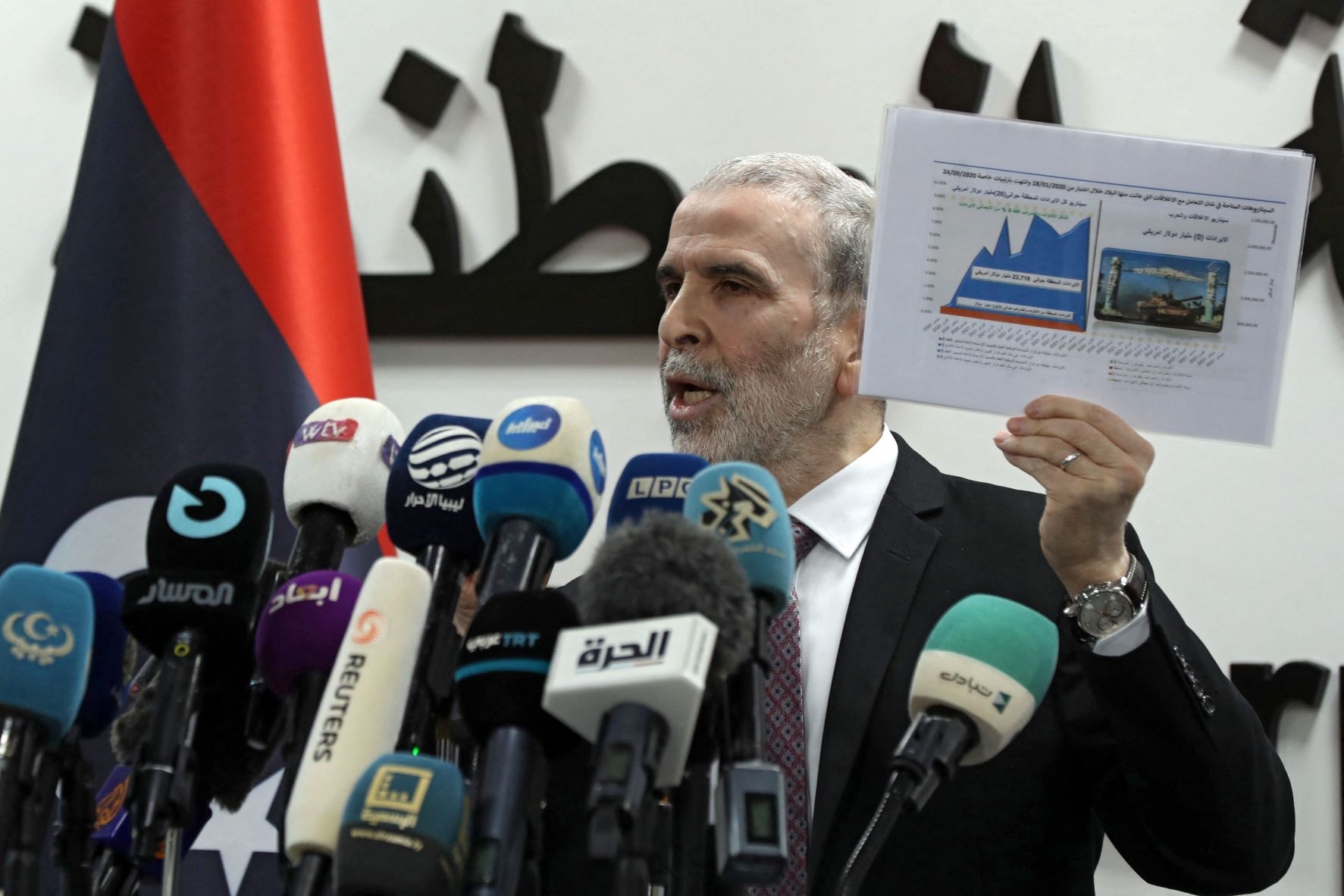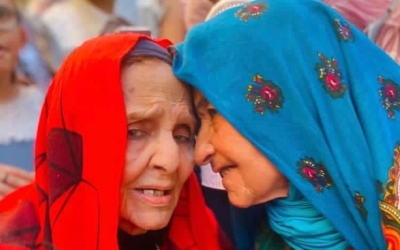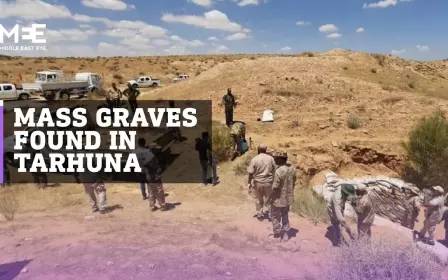Ousting of Libya's oil chief opens fresh fractures and prompts US intervention

A crisis is brewing at Libya's state oil company after the organisation's current head refused to give up his post following the appointment of his successor by the country's Tripoli-based government.
Mustafa Sanalla, previously known for maintaining the National Oil Corporation's relatively neutral stance in Libya during the tumultuous decade since Gaddafi fell, announced his refusal to be replaced, saying the mandate of the Tripoli government had "expired".
"This institution belongs to all Libyans and not to you," he said in a live video address to Abdulhamid Dbeibah, who was appointed as prime minister last year as part of a UN-backed peace process.
'By installing a person that he picked, Dbeibah has now good reasons to believe that he will be much more in control of the financial aspect of the NOC'
- Jalel Harchaoui, RUSI
In February, the parliament based in the eastern city of Tobruk - which is backed by powerful military commander Khalifa Haftar - named Fathi Bashagha as new prime minister of the country, however, Dbeibah has refused to concede power.
Sanalla also accused the United Arab Emirates of being behind those attempting to oust him.
New MEE newsletter: Jerusalem Dispatch
Sign up to get the latest insights and analysis on Israel-Palestine, alongside Turkey Unpacked and other MEE newsletters
On Wednesday, Dbeibah made public a 7 July decree announcing that former central bank governor Farhat Bengdara and four others would make up the "board of directors of the National Oil Corporation," ending Sanalla's eight-year stewardship.
Bengdara had overseen the central bank during the reign of former ruler Muammar Gaddafi between 2006 and 2011, before he joined the uprising that saw the Libyan leader ousted and killed that year.
"It's vitally important under the current conditions that Libya regains its oil and gas export capacity as quickly as possible," Bengdara told reporters in Tripoli.
"The oil sector has fallen prey to political struggles, but we will work to prevent political interference in the sector."
The US appears to have thrown its weight behind Sanalla in the current dispute.
In a tweet on Thursday, the US Embassy in Libya said it was "deeply concerned" about the power struggle at the NOC.
"[The NOC] is vital to Libya’s stability and prosperity, and has remained politically independent and technically competent under the leadership of Mustafa Sanalla," they wrote.
"The reported replacement of the NOC board may be contested in court but must not become the subject of armed confrontation."
A key battleground
The confrontation between the Tripoli government and Sanalla has been a long time coming.
The government's Oil and Gas Minister Mohammed Aoun told AFP in April that Sanalla had been "exceeding his prerogatives" and ignoring laws governing the oil sector.
Jalel Harchaoui, an associate fellow at the Royal United Services Institute (RUSI), told Middle East Eye that the dispute dates back to September 2020 when Haftar lifted a months-long blockade on oil exports on condition that proceeds would be more evenly divided between the different power centres.
"Before September 2020, every penny, every dollar captured was only transiting through the bank accounts of the National Oil Corporation and the money would just flow to the central bank in Tripoli," he said.
"After September 2020, the NOC became a financial actor - it became responsible for storing and accumulating the dollar revenues and its own banking accounts with the Libyan foreign bank. And that money, those billions of dollars, would be sent to the Central Bank of Libya only when the NOC decided on a case by case [basis] to do it."
As such, the leadership of the NOC became a key battleground. Harchaoui added that the choice of Bengdara, who he said knew nothing about oil, indicated that Tripoli was more concerned with wealth extraction than energy extraction.
"By installing a person that he picked, Dbeibah has now good reasons to believe that he will be much more in control of the financial aspect of the NOC that was introduced in September 2020," he explained.
The country's oil and gas sector, one of the world's largest, is a vital economic lifeline for the country.
Earlier this month ordinary Libyans took to the street to protest widespread power cuts across the country, which can often last up to 18 hours a day.
In the capital Tripoli and the second city Benghazi, protesters chanted "we want the lights to work", while other demonstrators ransacked the eastern parliament in Tobruk.
The Beltrees youth movement, an activist group campaigning for better living conditions in Libya, said on 2 July that its activists would occupy city streets and squares until all the ruling political bodies "announce their resignation in public".
Middle East Eye delivers independent and unrivalled coverage and analysis of the Middle East, North Africa and beyond. To learn more about republishing this content and the associated fees, please fill out this form. More about MEE can be found here.





